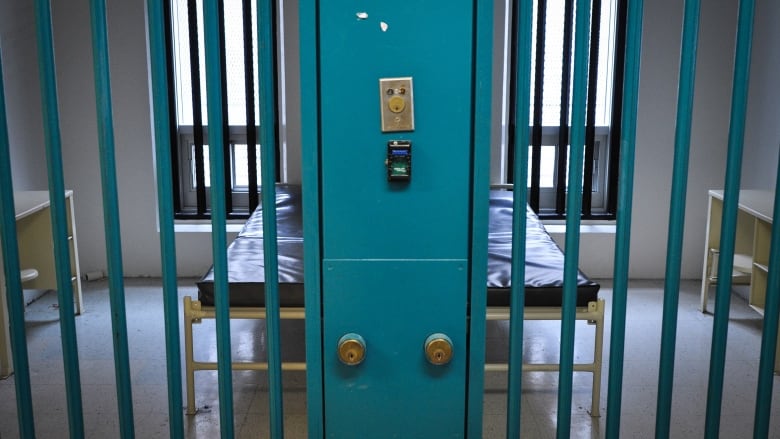5 inmates test positive for COVID-19 at Grand Valley Institution
Union representing prison guards says one correctional officer has also tested positive at the prison

Canada's largest prison for women is in partial lockdown as it deals with a COVID-19 outbreak, according toUnion of Canadian Correctional Officers.
Five inmates have tested positive for COVID-19 at Grand Valley Institution for Women in Kitchener, while two more tests are still being processed, according to Correctional Service Canada. The union says one prison guard has also tested positive for the virus.
In a statement, the Union of Canadian Correctional Officerssays one unit housing about 40 inmates in the 250 capacity prison is in lockdown, meaning inmates are being kept in their cells.
Correctional Service Canada says Grand Valley Institution is on "a modified routine with inmates self-isolating in their living units as a precautionary measure."
Thirty-one inmates have been tested forCOVID-19 at Grand Valley Institution, more than any other prison in Canada. There's a total of 12 confirmed positive cases in federal prisons,according to the correctional service.
Inmates are 'very scared'
Safety concerns are coming from the prison guards who work at Grand Valley Institution and inmate advocates who say they're hearing directly from women in the prison.
Emilie Coyle, executive director of the Canadian Association of Elizabeth Fry Societies, tells CBC News they've received more than 40 calls from inmates at the prison in the last two days.
"The women who called us are very scared," saidCoyle. "Everyone's calling to say, 'We're afraid, we want to get out' ... One woman said she didn't want to die in prison."
Coyle says the women have told her they don't believe there's enough measures in place at the prison to keep them safe. They're concerned correctional officers aren't wearing masks and there aren't enough cleaning supplies, according to Coyle.
The union says prison guards are also worried about having sufficient personal protective equipment (PPE).
"The type of PPE required to perform our work safely continues to be a source of anxiety among the membership at [Grand Valley Institution]," said a statement from the Union of Canadian Correctional Officers.
Correctional Service Canada says it's following safety protocols.
"We are closely and carefully following direction from public health officials, while following strict protocols to avoid further spread in the institution," the correctional service told CBC News in a statement. "We remain in close contact with our public health partners as we monitor this situation closely."
Release of inmates
Coyle is calling for the release of some inmates.
"We have seen from around the world when COVID-19 reaches prisons, it spreads like wildfire," said Coyle.
She would like to see women who are near their release date and eligible for parolebe released to their homes.
If those women don't have a home to go to, Coyle would like to see the prison work with shelters and halfway houses to help the women make their way back safely to their communities.
The Union of Canadian Correctional Officers says that approach wouldn't work.
"[It] would not solve the potential spread of COVID-19 in our facilities; it would only increase the risk for Canadians," the union says. "It is irresponsible to introduce further threats into our communities."
A spokesperson for the public safety minister has said the government is looking into"whether there are measures that could be taken to facilitate early release for certain offenders."
Coylesays Ottawaneeds to act immediately before the situation becomes worse.
"Going to prison should not be a death sentence and at this point if COVID-19 really spreads...it could be very very dire," said Coyle.












_(720p).jpg)


 OFFICIAL HD MUSIC VIDEO.jpg)
.jpg)



























































































